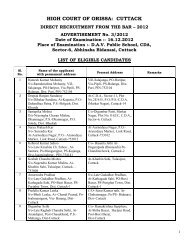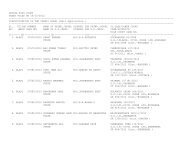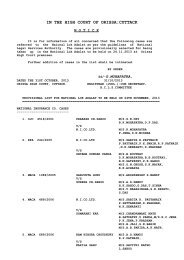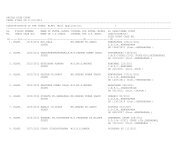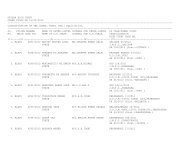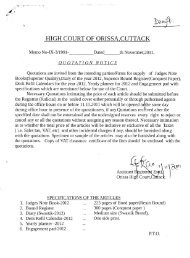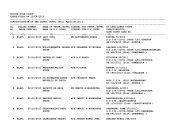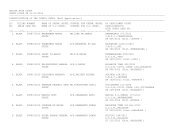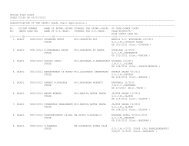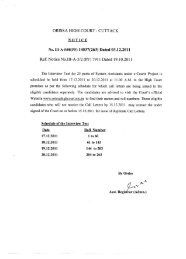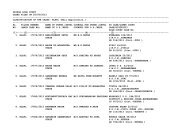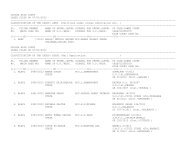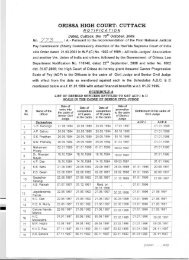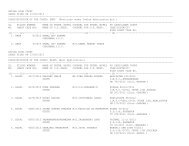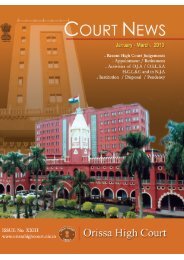ORIGINAL JURISDICTION - Orissa High Court
ORIGINAL JURISDICTION - Orissa High Court
ORIGINAL JURISDICTION - Orissa High Court
Create successful ePaper yourself
Turn your PDF publications into a flip-book with our unique Google optimized e-Paper software.
45<br />
and (c) on account of some mistake or error apparent on the face<br />
of record or any other sufficient reason.”<br />
While coming to such a finding, the Hon’ble Supreme <strong>Court</strong> also referred to<br />
some of the cases referred in this judgment earlier.<br />
K. CHANDRA MOHANTY -V- UNION OF INDIA [L.MOHAPATRA,J.]<br />
4. On analysis of all these decisions, one would find that power of review<br />
is available to a court only when there is a mistake or an error apparent on<br />
the face of the record and the power of review cannot be exercised to<br />
correct an erroneous decision. The reasons for the Hon’ble Supreme <strong>Court</strong><br />
to lay down this law is that an erroneous decision is to be challenged in<br />
appeal and the review power under Order 47, Rule 1, CPC can only be<br />
exercised for correction of a mistake or an error which is apparent on the<br />
face of the record. An illegal and erroneous finding whether on fact or law<br />
cannot also be a ground for review. The power of review cannot be<br />
exercised for rehearing on fact and law to correct an erroneous decision. If<br />
there has been an erroneous decision, the only remedy available to the<br />
party is to assail such decision in appeal. The scope of review is only to<br />
correct a mistake which has crept in to the judgment and apparent on the<br />
face of the record or in cases where some materials though available on<br />
record, escaped the notice of the <strong>Court</strong> for some reason or other affecting in<br />
merits of the case. In the light of the scope of review as stated above, we<br />
now proceed to examine the grounds taken in the review petition and find<br />
out as to whether the impugned judgment can be reviewed.<br />
5. The review petitioner after serving as Inspector of Income Tax for more<br />
than three years appeared in the Departmental Examination held during<br />
June/July 1995 but the results were published on 12.2.1996. During the<br />
period from June/July 1995 and 12.6.1996 that is the date of publication of<br />
result, five posts of Income Tax Officer (Group-B) were sanctioned for<br />
<strong>Orissa</strong> Region and a DPC was convened on 13.10.1995 to select Officers<br />
for promotion to the above five posts. The Departmental Examination result<br />
having not been published, the case of the review petitioner was not<br />
considered. It is the case of the review petitioner that he having already<br />
appeared in the Departmental Examination by the time the DPC was<br />
convened, his case should have been considered by the DPC and kept in<br />
sealed cover till publication of results of the Departmental Examination. It is<br />
also the case of the review petitioner that on earlier occasions also<br />
whenever any DPC had been convened in between the last date of<br />
examination and publication of results thereof, the Department used to<br />
convene review DPC to consider the cases of those Inspectors of Income<br />
Tax who clear the examination and allow them promotion on<br />
recommendation of DPC with retrospective effect, i.e., from the date on



